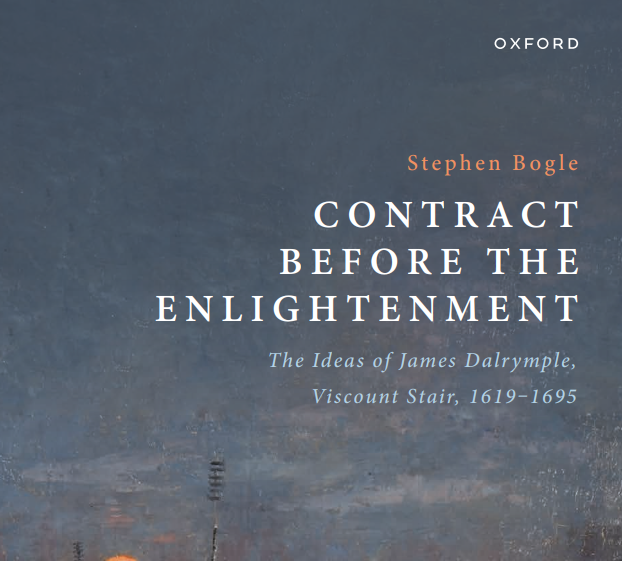by Dr Stephen Bogle, Senior Lecturer in Private Law, University of Glasgow
Contract before the Enlightenment: the ideas of James Dalrymple, Viscount Stair, 1619-1695 was published in March this year by Oxford University Press. It investigates the intellectual impulses which inspired Viscount Stair’s transformative account of the law of contract. In his wide-ranging, Institutions of the Law of Scotland first published in 1681,[1] Stair offers a specific title on ‘conventional obligations’, which includes an examination of contracts, unilateral promises, firm offers, acceptance, and third-party contracts, as well as remedies, followed by separate titles on nominate contracts (loan, mandate custody, sale, hire and society). It is seen as foundational to the law of contract in Scotland. As Martin Hogg said in his pioneering study of Stair, ‘Any understanding of the nature of the Scots law of obligations, including the theory of Scots contract law, must begin with the Institutions of the Law of Scotland.’[2] The book, therefore, offers a fresh examination of what inspired Stair to place the law of contract on a new philosophical basis. This post gives a summary of the book’s central themes. In other words, it tells you six things you should know about Stair’s account of contract law.
Leave a Comment